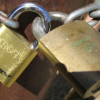Quantum crypto still not proven, claim Cambridge experts
Two killjoy researchers from the University of Cambridge have cast doubt on whether quantum cryptography can be regarded as ‘provably secure’ – and are asking whether today’s quantum computing experimentation is demonstrating classical rather than quantum effects.
Computer scientists Ross Anderson and Robert Brady have published their discussion at Arxiv, here. In the paper, they examine two key issues in quantum research. As well as looking at the cryptography question, they also examine why quantum computing research is finding it hard to scale beyond three qubits.
“Despite the investment of tremendous funding resources worldwide, we don't have working testbeds; we're still stuck at factoring 15 using a three-qubit algorithm”, the paper notes. It suggests that current experiments have not yet proven that “local realism” (that is, classical behaviour without the “spooky action at a distance” that so bothered Einstein) is violated.










































































